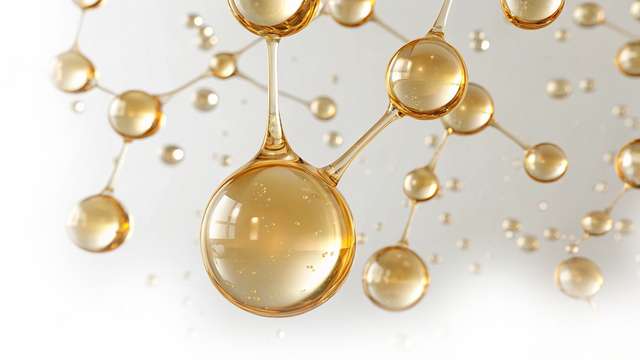
Panel discussion on...
Peptides
Emerging Trends in Peptide Use: Innovations and Applications
Recent restrictions in peptide synthesis are carrying exciting innovations, particularly in the development of PFAs-free peptides, driven by the growing demand for sustainable, naturally-derived solutions.
The upcoming European regulations banning PFAS (1), known as the “forever chemicals”, in peptides synthesis is shifting the market toward biotechnology and green chemistry -derived peptides. For example, peptides produced through a biotechnology process using plant-based amino acids eliminates concerns around perfluoroalkyl substances while ensuring high performance and environmental-friendly alternative (2). However, this transition rises new challenges to manufacturers, that must adopt alternative acids in the synthesis process, which can impact the yield, production costs and finished products price.
These new restrictions will increase the demand for multifunctional peptides, able to offer biomimetic efficacy for both skin and hair, providing peptides versatility and enabling brands to streamline formulations without compromising results (3). Peptides, like other ‘hero ingredients’, are also entering the skinification trend, increasing the demand for low-dosage efficacy, cost effective ingredients with strong, clinically proven performance for hair and scalp.
Peptides remain a cornerstone of anti-aging skincare, renowned for their ability to stimulate collagen production. However, in an increasingly crowded market, innovation lies in discovering new mechanisms of action—such as targeting previously unexplored skin aging markers—promoting tissue repair, modulating inflammation, and enhancing cellular communication to support skin longevity and regeneration (4).
Mechanisms of Action of Peptide and Market Perception
Peptides are short chains of amino acids that mimic natural biological signals, helping the skin function at its best.
They remain a cornerstone of anti-aging skincare, renowned for their ability to stimulate collagen production (4). This function is primarily linked to signal peptides, which mimic the natural biological signals involved in extracellular matrix synthesis, stimulating fibroblasts activity to boost collagen and elastase production.
Peptides are classified by their mechanism of action, including also the neurotransmitter inhibitor peptides that relax facial muscles, minimizing expression wrinkles, carrier peptides that deliver essential trace elements to support skin repair, and enzyme inhibitor peptides that reduce collagen breakdown, preserving the integrity of the skin.
A peptide’s performance is influenced by its molecular weight, amino acids sequence, and charge, which will impact its ability to penetrate into the skin barrier (4). Positively charged amino acids, such as lysine, tend to interact more frequently with cell membranes if they are located at the extremities of the sequence, enhancing absorption. Additionally, recent studies highlight that peptides with a molecular weight below 500Da are more efficiently assimilated, outperforming many peptides currently on the market (5).
Despite the consumer’s perception that high-performance peptides are inherently synthetic and expensive, advancements in biotechnology now offer sustainable, cost-effective, and highly potent peptide alternatives.
Sustainability and Peptides
Peptide manufacturers are embracing PFAS-free synthesis, leveraging biotechnology and green chemistry to create high-performance, sustainable alternatives. Naturally derived peptides from plant-based sources and bioengineered fermentation are gaining traction, reducing reliance on petrochemicals while promoting safety and better bioavailability.
These innovations align with the principles of the circular economy, minimizing waste, optimizing resource efficiency and fostering trust and transparency for consumers, without compromising performance. As demand for eco-conscious beauty grows, biotech-driven peptides are emerging as the future of sustainable skincare.
Panelists
References and notes
- Commission restricts use of a sub-group of PFAS chemicals to protect human health and the environment. https://ec.europa.eu/commission/presscorner/detail/en/ip_24_4763
- Peptides are taking the skin care world by storm in 2024. Cosmetics Business https://cosmeticsbusiness.com/peptides-are-taking-the-skin-care-world-by
- Peptides: Beauty's most versatile ingredient. Cosmetics Business. https://cosmeticsbusiness.com/peptides-beauty-s-most-versatile-ingredient-155438
- Pintea, A.; Manea, A.; Pintea, C.; Vlad, R.-A.; Bîrsan, M.; Antonoaea, P.; Rédai, E.M.; Ciurba, A. Peptides: Emerging Candidates for the Prevention and Treatment of Skin Senescence: A Review. Biomolecules 2025, 15, 88
- Pursuing skin health with 'ultra-low molecular weight peptides' -
The K Beauty Science Inc.https://www.linkedin.com/pulse/pursuing-skin-health-ultra-low-molecular-weight-peptides-inc--pbakc/




































